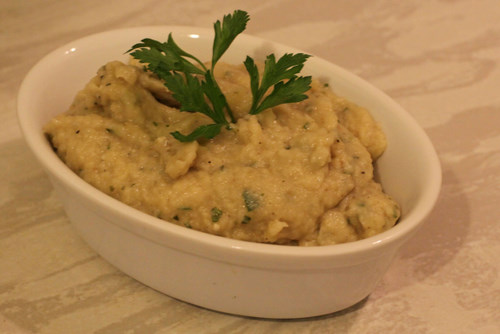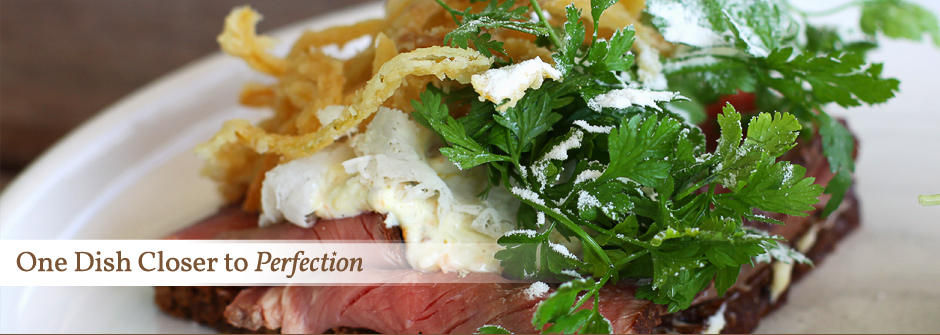Middle Eastern mezze no.6: Baba ganoush
 Thursday, May 5, 2011 at 8:02PM
Thursday, May 5, 2011 at 8:02PM 
Back to the Middle East for a few days and then onto new things. The boyfriend will breathe a sigh of relief (a rather garlicky one); he does love a bit of mezze, but everyone has their limits.
Next on the list is baba ganoush, which I have just discovered means "My father is spoiled like a child by my mother". And I thought the Turkish version was a mouthful! I have also always called it a dip, but according to Mark Hix, in Turkey it is considered a salad,
You might think this is a dip, but I'm insisting it's a salad because that's what my local Turkish restaurant calls it. Their aubergine salat is more roughly chopped. My smoother version is one of my favourite mezze dishes, and forms part of a salady selection to start a meal with.
 Vix |
Vix |  Post a Comment |
Post a Comment | 